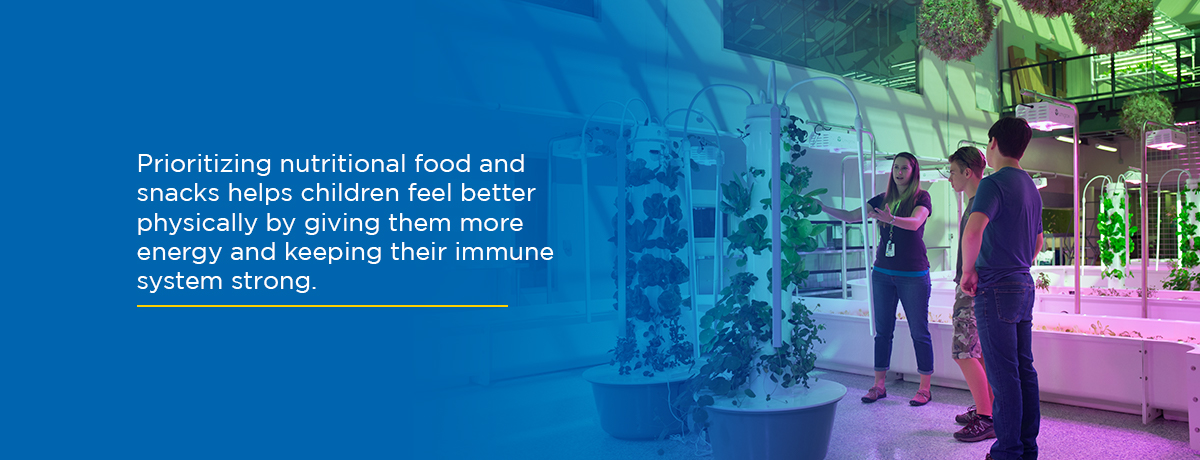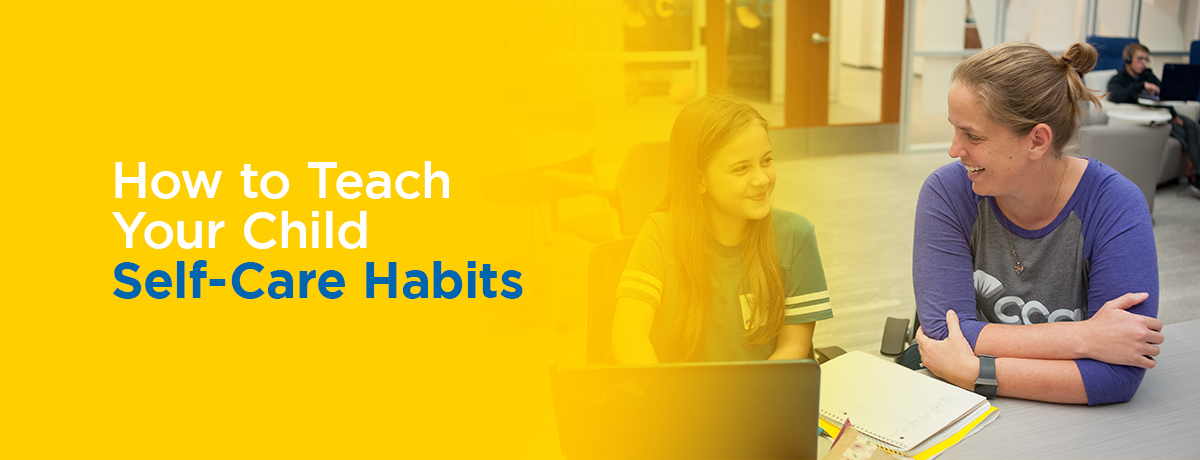Stress among students has become an epidemic, and burnout is becoming increasingly common. Self-care for students at home is vital for maintaining a sharp mind and consistently high levels of motivation. Practicing self-care is more than a trend—students’ mental health greatly benefits from regular, intentional periods of self-reflection and showing themselves love.
We have compiled a list of four self-care tips for students. The best way to help children learn about self-care is by practicing your own self-care. You’ll set an example for your child and normalize the treatment.
1. Practice Gratitude
Help your child feel more secure by encouraging them to practice gratitude. There are many ways to feel and express gratitude, and doing so is extremely valuable to an individual’s mental health. People who apply gratitude to the past, present, and future cultivate healthy positivity throughout their day and outlook.
Gratitude journals help establish a habit of reflecting on the positive aspects of each day. Children apply this to the past by pulling positive memories and past achievements. When children develop these skills and apply gratitude to the present, they learn that they’re not entitled to good fortune and should be thankful for things as they come to them. This ability to feel grateful for things helps them keep a healthy perspective on the world around them.
While it’s important to maintain a positive outlook and focus on the silver lining, be careful to avoid toxic positivity. Toxic positivity is the belief that you should always maintain a positive mindset regardless of the circumstances. This line of thinking goes beyond optimism, as it actively rejects difficult emotions. Encourage your child to acknowledge the good parts of their day, but allow them to feel and process their negative emotions, too.
2. Prioritize Your Social Connections
Spending too much time alone can have a negative impact on a child’s mental health, which is why it’s important to ensure that they have time to hang out with their friends, family, and peers. Loneliness is on the rise, especially in the wake of the COVID-19 pandemic when many felt the need to isolate themselves from others. The risk of feeling isolated, alienated, or lonely is extremely high—people with low social connections are more likely to experience anxiety and depression at some point in their life.
Social connections have proven to be positive influences on the mental health of individuals of all ages. Spending time with peers is extremely important for a child’s emotional and social development, and building a strong support system among friends and family members has lasting effects.
Incorporate social connections into your routine. Set up playdates, whether they’re in person or virtual, to help your child learn how to develop positive, healthy relationships. Asking your child about their friends at school also encourages them to look for those social connections. Respect your child’s personality and help them explore their interests—the way you treat them sets an example for how they expect others to treat them, so you should remember to show kindness.
Relationships help children learn problem-solving skills. As they grow older, young people learn how to set and enforce boundaries in relationships. It’s important to encourage your child to interact with people, from peers to family members, to give them experience with others of varying ages. They’ll learn a lot by watching their parents, so take care to set an example that you want them to follow.
3. Keep a Healthy and Sustainable Schedule
Daily routines provide children with a great baseline because they know what to expect during certain parts of the day. Established routines offer predictability, reducing the amount of anxiety your child might experience. Routines also help you and your child achieve more in a day—things that need to be done every day are assigned to specific time slots, which encourages continued activity and ensures that the tasks are complete.
The body becomes accustomed to certain parts of your routine, which can be used to regulate bodily functions. Going to bed at the same time each day leads to better, more refreshing sleep. Restful sleep sharpens the mind and increases your ability to focus. Higher, more consistent mental performance, in turn, contributes to healthy emotional well-being.
Prioritizing nutritious food and snacks helps children feel better physically by giving them more energy and keeping their immune system strong. Avoid fast food and junk foods filled with sugar. Communicate the importance of being mindful about what you put into your body. Healthy snacks and meals mean more than providing for your child—they’ll pick up on your habits and want to copy you. Set a great example by taking care of your own physical health.
Activity keeps the brain active, and exercise helps children burn off energy in an intentional way. Exercising each day keeps children out of trouble by redirecting their energy into a game or sport. Whether you pass a ball around outside or set up an obstacle course in your living room, encouraging physical activity helps prevent burnout and benefits children in the long run.

4. Show Yourself Love
Expressing the importance of self-care treatments makes a huge difference for your child. Children can also deal with mental health issues, not just adults. You can equip your child with resources to help them avoid or manage mental disorders like depression and anxiety. Normalize self-care to help them manage their mental health and become accustomed to self-reflection.
Stress the importance of taking breaks when you need them and expressing difficult emotions through crying or other healthy coping mechanisms. Invite your child to participate in soothing activities like deep breathing, meditation, taking a bath, and massages. Seeing you practice self-care and doing so themselves, especially from a young age, helps children learn how to manage their emotions in a healthy and constructive way.
There are additional mental health resources available for children. Monitor your child for signs of mental health disorders and help them get the proper care as early as you can to avoid the illness becoming worse.
Learn More About Commonwealth Charter Academy
Commonwealth Charter Academy is a cyber school that prioritizes learners’ mental wellness in conjunction with their educational experience. Our public charter school serves K-12 learners in Pennsylvania, offering year-round enrollment. We strive to help learners acquire and retain knowledge, skills, and confidence that follows them into adulthood. Our learner-centered approach to teaching offers a flexible pace that caters to each child’s interests and needs.
Personalized curricula and various extracurricular activities ensure that learners grow academically, socially, and emotionally, all from the comfort and safety of their own homes. If you’d like more information about how CCA can help create a stress-free environment for your family, request more information today!




